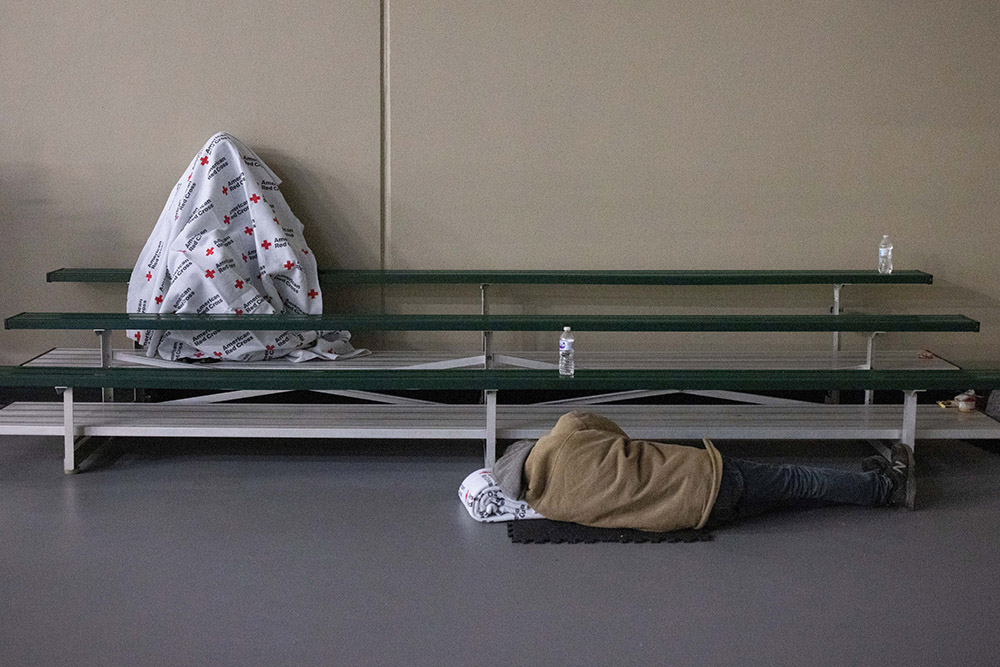
People take refuge at a shelter in Galveston, Texas, Feb. 18, after record-breaking winter temperatures hammered the region. (CNS/Reuters/Adrees Latif)
As 2021 began, I heard an interview on NPR with the Rev. William H. Lamar IV, pastor of Metropolitan AME Church in Washington, D.C. He was preparing for his congregation's New Year's Eve service, and he told the host something that stuck with me:
And so, you know, a lot of people talk about 2020, how awful it was as if 2020 had agency. But 2020 did nothing to us. The most egregious things that happened were because of our own systemic racism, because of our own refusal to challenge capitalism, because of our own refusal to grant universal health care. 2020 did not do that to us; the American refusal to treat human beings as human beings did that to us. So I tried to frame that and to say this is God's vision, and we have agency. We can make the new world if we move in this direction.
2020 did not do that to us; the American refusal to treat human beings as human beings did that to us.
I carried these words with me into the new year. My friends and I had been referring to 2020 as a dumpster fire, and we traded memes back and forth poking fun at just how awful everything felt. But Lamar's words pushed me to reflect beyond the funny memes. 2020 did not happen to us. We did it to each other.
We keep doing it to each other.
I type this, full of gratitude, from a warm home in Texas on day five of this winter storm. My kitchen counter is full of pots of water, as the city has asked us to boil tap water before consumption. Many of our friends have lost power. They have abandoned frigid homes and sought shelter elsewhere. But the storm did not do this to us.
We keep doing it to each other.
News reports teach us that state leaders decided the cost of winterizing Texas power plants outweighed the benefits. Water hoarding, done in fear that water might be lost completely, is partially responsible for the struggles our water plants now face.
Advertisement
All in all, it feels eerily similar to last March, before COVID-19 shut much of the world down. I slowly walked up and down the aisle of a local store and was stunned at the empty shelves normally full of toilet paper and bleach. Nothing was left. Some had plenty while their neighbors had none. And now, it is colder.
I wrestle with the guilt I carry on these bitter cold days. Knowing friends were losing power, my family and I hesitated before inviting them into our homes. "But it's still a pandemic!" we discussed. "Is it safe?"
By the time we started extending offers, most people had already found shelter elsewhere. I am culpable of not loving my neighbor well, too. If I ever manage to make it to church again — in a post-pandemic world — there is much to confess.
In The Long Loneliness, Dorothy Day writes, "We cannot love God unless we love each other, and to love we must know each other." But it is so hard to know each other right now, right? Masks and social distance and layers of slippery ice and empty water spouts and blame-games across social media make it nearly impossible to know our neighbors in the middle of this snow-demic.
I want to offer some sort of spiritual practice or solution to this endless way we keep hurting each other. But I keep coming up empty. We are still in it, shin-deep in snow and a year into a global pandemic. The sunrise seems too far away; it is a good thing Lent is 40 days long.







